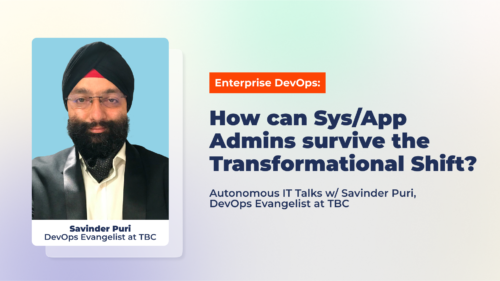What is DevOps?
Before talking about skills for DevOps engineer let’s start with a brief introduction to DevOps.
“Cross-functional collaboration” is the best way to explain DevOps in a few words. DevOps, which is formed from the words “development” and “operations,” is a collection of methods used by both development and IT teams to reduce the development lifecycle and create, test, and deliver software more quickly and accurately.
What is a DevOps Engineer?
DevOps is all about bringing processes together and automating them, and DevOps engineers are essential in bringing code, application maintenance, and application administration together.

From coding and implementation through maintenance and upgrades, a DevOps engineer offers methods, tools, and approaches to balance requirements all through the software development process.
DevOps engineers simplify the process of developing an application by bridging the gap between the activities required to modify an application and the tasks required to make it reliable.
Top 15 Skills for DevOps Engineer
Below are the top 15 skills that are of key importance for any DevOps engineer.
1. Knowledge of a Wide Range of DevOps Technologies
DevOps is a relatively young concept, having emerged in the late 2000s as a trend. As a result, emerging innovations continue to emerge in the DevOps ecosystem. Therefore it is important to consider whether a DevOps candidate is familiar with a variety of DevOps techniques when hiring DevOps engineers.
2. Security
DevOps is all about speed, automation, and reliability. That’s where the secure DevSecOps practice takes shape and vulnerabilities follow increased coding speed.
Engineers must be able to write code that is resistant to a variety of assaults and weaknesses.
3. Expertise With Major DevOps Tools
A competent DevOps engineer must understand how to use a number of DevOps tools effectively in addition to knowing the latest DevOps technology. Determining what tool to use, when, and how to use it, is a vital skill in DevOps because it comprises multiple phases.
Here is the common DevOps tools list that a DevOps engineer must know:
- DataDog: Datadog is a significant cloud application tracking and protection platform. Its features assist businesses in securing their systems, avoiding downtime, and ensuring the best possible user experience for their consumers.
- Moogsoft: Moogsoft helps in the detection and repair of an outage that is hampered by large amounts of data. Its enrichment provides actionable insights by adding context to received alerts from multiple data sources.
- Splunk: Splunk’s data platform is expandable, allowing for unified protection, full-stack observability, and endless bespoke solutions.
- Resolve.io: Resolve.io provides your IT teams with sophisticated automation that is purpose-built for them.
- Acure: A topology-based AIOPs platform with a full functionality CMDB that you can use for free.
- PageDuty: PagerDuty is used for more efficient digital operations, a faster resolution of issues, and for keeping your business running at all times
- ScienceLogic: Science Logic uses data-driven automation to assist IT operations professionals in delivering better business results.

4. Flexibility
The DevOps engineer must have an extensive understanding of the ever-changing technology as well as the ability to work with the most up-to-date tools and stacks. They must also be capable of integrating, testing, releasing, and deploying each project.
5. Active Collaboration
Yes, we know you must hate it 😅
But it is one of the necessary skills for a good DevOps Engineer. To optimize the workflow coming in from the cross-functional ecosystem of programmers, developers, and business units, active communication is required. Transparency and open communication amongst engineers is essential.
6. Automation Expertise
To be referred to as a good DevOps engineer, you must have a strong understanding of automation, which is at the heart of the DevOps process. A DevOps engineer should be able to automate the full DevOps pipeline, which includes CI/CD cycles, application data monitoring, performance and configurations, and so on.
7. Scripting and Coding
Two critical skills for a DevOps engineer to have been coding and scripting. Python, Django, Java, Javascript, Bash, PHP, and Node are all examples of programming languages that are commonly used by DevOps engineers.
8. Cloud Expertise
Cloud and DevOps are inextricably linked. The effectiveness of one is directly influenced by the effectiveness of the other. While the DevOps technique accelerates a development process, the cloud facilitates it by providing the essential infrastructure for testing, deploying, and launching code.
9. Customer Centric
DevOps engineers must be able to imagine themselves in the shoes of their customers and make judgments based on their needs. This will help them collaborate with developers, stakeholders, and others that are part of the development team.
10. Proactiveness
Ha-ha-ha 😅
Generally, DevOps engineers and professionals will need to be proactive and enthusiastic about their work, which will reflect in their performance and productivity. Furthermore, maintaining current with pertinent technology, new tools, and other factors is an important element of your approach.
11. Fundamentals of Linux Should Be Well-Understood
DevOps engineers must have solid Linux principles understanding because most firms’ tech infrastructures run on Linux, and configuration management tools like Ansible, Chef, and Puppet.
12. Infrastructure as Code
Infrastructure as Code, also known as programmable infrastructure, is a type of IT infrastructure that enables operations teams to collaborate and provision resources using code rather than a manual procedure.
Knowing infrastructure is a must-have ability to look for when recruiting DevOps engineers since it allows them to efficiently create and deploy apps on the best platform available.
13. Continuous Integration and Continuous Delivery’s Understanding
It’s not enough for a DevOps engineer to know how to use specific tools. Recruiters should look for someone who understands how to use it. Knowing where to use these tools will make Continuous Integration and Continuous Delivery much easier.
14. Soft Skills
If an engineer is strong at code and automation, it won’t cut it. DevOps requires a different kind of person, one with soft skills, self-motivation, adaptability, and a willingness to learn. Professionals in DevOps should be both doers and listeners.
15. Version Control and Configuration
Jenkins, a continuous integration tool, had been around for a long time before DevOps became so popular. With the support of its automated capability, this technology helped the operations team achieve great success by enabling a consistent build. Therefore, a DevOps engineer must know how to automate code-building processes.
A fantastic bonus video:
What Is the DevOps Engineer Salary in Different Countries?
The table below shows the minimal and maximum salaries that can be expected in various countries for a DevOps engineer:
| Country | Minimum Salary P/A | Maximum Salary P/A |
| U.S.A | $ 63,000 | $ 134,000 |
| U.K | € 26,000 | € 67,000 |
| India | INR 3,07,000 | ₹ 2,000,000 |
| Canada | CAD 55,000 | C$ 99,000 |
What Is AWS DevOps Certification?
The AWS DevOps certification assists organizations in identifying and training people with crucial capabilities for cloud implementation.
The capability to automate the testing and installation of AWS infrastructure and apps is validated by becoming an AWS Certified DevOps Engineer. You must complete the AWS Certified DevOps Engineer test to achieve this certification.
What to Study to Become a Skilled DevOps Engineer?
University qualifications in computer science or a similar discipline, as well as professional experience, are often required to become a DevOps Engineer.
- Get a bachelor’s degree in computer science or a comparable field with a software development specialization.
- Consider postgraduate education or industry certifications to improve your abilities and expertise.
- Work in positions that introduce you to coding and programming languages, cloud platforms, and agile principles to gain industry experience.





